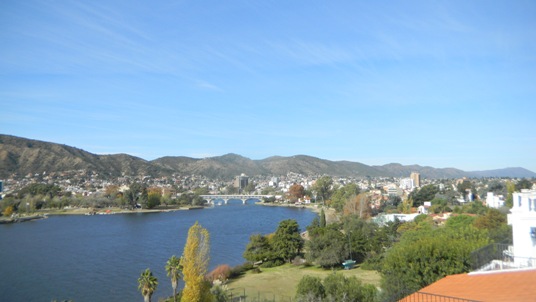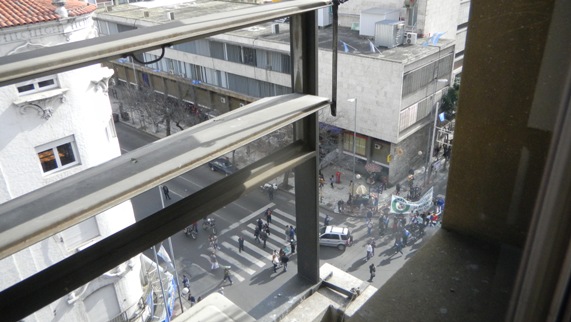Movin' and Shakin' at CEDHA
I didn't realize how much I've experienced in the past two weeks until I sat down to write about it. So I'm going to separate it into two blog posts, this one talking about my CEDHA work and the other talking about life outside work.
After several meetings with Daniel, a strategic advisor to CEDHA, I finally have a grasp on what my capstone project is. Andrew, the other American intern, and I will be collaborating with Daniel to write a paper about mining in Argentina, specifically as it relates to glaciers. It's a connection that seems to be relatively unexplored in academia. It introduces the basics to glaciers and their importance, to different conceptions of human rights, and to mining in Argentina. It then proposes the concept that glaciers are sometimes destroyed in order to get to ore deposits, or are damaged by dust, heat, or other conditions brought on by mining activity. Glaciers are an important part of the water source for communities in the Andes where this mining occurs, and the destruction of glaciers affects their right to water. The loss of water, in addition to pollution that can occur due to all the chemicals used in extracting the valuable minerals, can affect crop yields and thus the communities' right to development. This video, featuring famous Latin personalities, explains the issue (in Spanish).
Another thing Andrew and I have been working on is an investigation from the Clinicas group. We entered Clinicas to many different projects already in progress concerning any number of topics - access to drinking water, waste management, etc. Our help has been requested with regards to the recent decision to bring an American company, Innviron, into Argentina to treat Cordoba's waste. Their technology is supposed to be green and create energy and some recyclable material for use in construction, but CEDHA wants to know more about the process - what amount of energy is used in 'gasifying' the waste in contrast to how much it allegedly produces? What kind of gases and wastes does the process create and how much? In addition, the proposed plant is questionably close to neighborhoods. Since the company is American, our English-language skills help a lot with the investigation.
We've been helping to draft press releases, which have garnered some attention. I helped write this one (Barrick moving glaciers - hit 'Ver noticia completa'), which got picked up by a local newspaper, basically translated, and turned into an article! How funny. Daniel has also given us other small tasks to help make CEDHA more known and accessible on a global scale.
CEDHA has made news recently as well, for a new lawsuit we brought on June 5. A waste treatment plant on the river Suquia in Cordoba has been in disrepair for several years, and it has been dumping fecal waste into the water, creating a count in the water that is higher than that allowed by law. CEDHA filed suit in conjunction with the communities of Chacras de la Merced and Corazon de Maria against the municipality, requesting a declaration of a section of the river as dangerous and a rehabilitation and repair of the situation. Our legal advisor, Juan Picolotti, appeared on a news program on June 8 to talk about it. Here is a link to the youtube video, in Spanish.
I've gotten to get out of the office a few fun times, too. Andrew and I met with Daniel one day in his town of Carlos Paz, which is about 45 minutes from Cordoba by bus. Daniel took us to a very nice resort for coffee and croissants to discuss our paper. The place had spectacular views of the little city of Carlos Paz - here is a picture I took from their patio:
I also got to go to see one of the coordinators, Alejandro, give a presentation at the University on the environment for the bicentennial, as part of a program of reflection and thought after 200 years of Argentina. Juan Picolotti also gave a talk about access to environmental justice at the law department that I was able to sit in on. It's been neat to learn about the issues I've been working on in a different atmosphere.
Lastly, it really felt like Latin America when I experienced my first workers' street protest. Another advisor, Victor, explained to me that the right to protest is a constitutional right in Argentina, and that an organization can shut down a large street (for example, the one right outside my office window) to pound drums, launch firecrackers, burn tires, and make themselves heard - though usually they will give the police some warning beforehand. This was the scene outside my office window one day last week, down there in the corner:
If the past few weeks have been any indication, this is gonna be a fun internship.
Saludos,
Catherine

